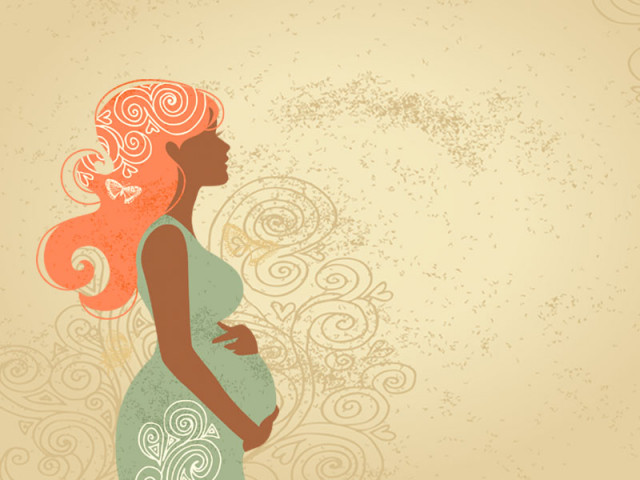What women should know about pregnancy
Old wives tales may cause more harm than benefits to pregnant women.

What women should know about pregnancy
Why is it that international celebrities generally manage to gain less weight during pregnancy and shed it faster post delivery, whereas our women gain excessive weight which becomes hard to cut down? You may have heard the old adage “Eat, eat, eat – you are eating for two!”, or that one should cut down on physical activity for those nine months, but has anyone ever told you this ‘advice’ can be detrimental? To explain this trend amongst Pakistani women, we asked some experts to shed light on dos and don’ts during pregnancy.
Eating for two
“You do not need to eat for two,” says gynecologist Dr Yousaf Latif of Hameed Latif Hospital. “It is never advised to over eat but rather, to eat healthy and what the mother is comfortable eating.” Dr Latif adds that because nausea and morning sickness persist throughout the first trimester, it is essential for the mother to be comfortable with what she is eating. He further says, “You can stay fit and yet have a healthy and happy pregnancy. We advise that women stay active and continue on with life as usual.”
Strict bed rest
Another misconception is that pregnant women cannot be active and need to be bedridden. But experts say that each case is different and it is important for the mother to decide how much she can comfortably handle. “If the mother is used to exercising on a regular basis before conception, then she should continue with it.” To emphasise this, Dr Latif related the story of a Russian gymnast who won a gold medal while being four months pregnant, saying that it is safe and advisable to keep life as normal as possible. The need for bed rest arises when complications such as bleeding occur during the first trimester.
Desi ghee
“Most women actually believe that desi ghee and castor oil are good for them during pregnancy and many take them in excess to induce labour,” says Dr Latif. “This is very harmful. It results in delivering the baby before the due date which is harmful for the child.” He also adds that this may create abruption – detaching of the placenta from the uterus – which is dangerous for both the mother and child.
Folic acid
Some medicines containing folic acid are important for the child as they reduce the chances of abnormalities of the central nervous system. “We advise women to start taking folic acid three months prior to the time that they want to start trying to have a child. This is very important and needs to be taken regularly for the baby’s health,” says Dr Latif.
Hair dye
Contrastingly, an item to avoid during the first trimester is hair dye. Who would have thought that hair dye could contain chemicals that are harmful for the baby? Doctors advise that women avoid getting their hair dyed during pregnancy, and get treatments done before they conceive.
Stretch marks
“Stretch marks arise because of dryness. To prevent them from appearing, one must gently apply oil-based moisturisers to keep the belly well-lubricated,” says Dr Latif. Once they appear, stretch marks are impossible to remove unless plastic surgery procedures are adopted.
Fighting fat
Baber, a personal trainer at Structures Gym, advises women to have a balanced diet full of fruit, juices and protein and says meals should not be skipped. “If women cannot afford to go to the gym or have a personal trainer, they can easily do floor exercises and aerobics at home,” says Baber, adding that “at the gym, we follow TRX, medicine ball, Swiss ball, cross fit and functional movement exercises that are very effective and help reduce weight and tone up within months of delivery.” Baber also says that dinner should be taken by 8pm, and a glass of lukewarm milk before bedtime serves as an added bonus for weight loss.
Published in The Express Tribune, July 17th, 2012.



















COMMENTS
Comments are moderated and generally will be posted if they are on-topic and not abusive.
For more information, please see our Comments FAQ